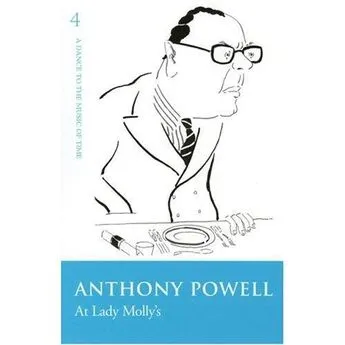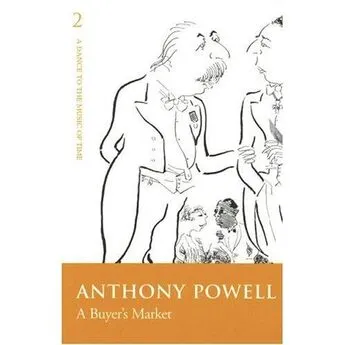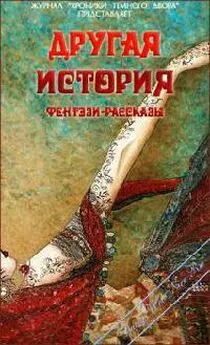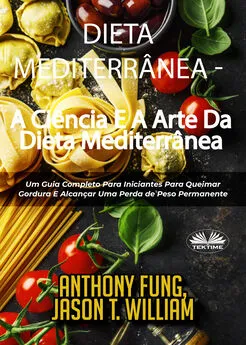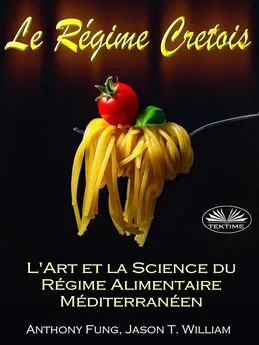Anthony Powell - At Lady Mollys
- Название:At Lady Mollys
- Автор:
- Жанр:
- Издательство:неизвестно
- Год:2005
- ISBN:нет данных
- Рейтинг:
- Избранное:Добавить в избранное
-
Отзывы:
-
Ваша оценка:
Anthony Powell - At Lady Mollys краткое содержание
A Dance to the Music of Time — his brilliant 12-novel sequence, which chronicles the lives of over three hundred characters, is a unique evocation of life in twentieth-century England.
The novels follow Nicholas Jenkins, Kenneth Widmerpool and others, as they negotiate the intellectual, cultural and social hurdles that stand between them and the “Acceptance World.”
At Lady Mollys - читать онлайн бесплатно полную версию (весь текст целиком)
Интервал:
Закладка:
By that time we had arrived before a dilapidated stucco fa£ade in a side street, a house entered by way of a creaking, unlatched door, from which most of the paint had been removed. The hall, empty except for a couple of packing-cases, gave off that stubborn musty smell characteristic of staircases leading to Chelsea flats: damp: cigarette smoke: face powder. We climbed the uncarpeted boards, ascending endlessly floor after floor, Frederica Budd taking the steps two at a time at a sharp pace. At last the attics were reached; and another battered door, upon which was fastened a brass knocker, formed in the image of the Lincoln Imp. Attached with four drawing-pins to the panel below this knocker was a piece of grubby cardboard inscribed with the names:
TOLLAND
WALPOLE-WILSON
Frederica, ignoring the claims of the Lincoln Imp, clenched her fist and banged on the door with all her force, at the same time shouting in an unexpectedly raucous voice:
‘Norah! Eleanor!’
There was a sound of someone stirring within. Then Eleanor Walpole-Wilson opened the door. She was wearing a very dirty pair of navy blue flannel trousers and smoking a stub of a cigarette. Apart from her trousers and cigarette, and also a decided air of increased confidence in herself, she had changed very little from the days when, loathing every moment of it, she used to trail round the London ball-rooms. She still wore her hair in a bun, a style which by then brought her appearance almost within measurable distance of ‘the mode’; or at least within hail of something that might, with a little good will, be supposed unconventionally chic. Square and broad-shouldered as ever, she was plainly on much better terms with herself, and with others, than formerly.
‘I’ve brought an old friend to see you,’ said Frederica.
Eleanor showed no surprise at my arrival. There was even a slight suggestion of relief that Frederica Budd had not to be entertained singly; for towards Frederica Eleanor displayed a hint of her old aggressiveness, or at least gave indication that she was on the defensive. This sense of quiet but firm opposition became more positive when we moved into the sitting-room.
‘How are you, Nicholas?’ said Eleanor. ‘Fancy your turning up here. Why, you’ve got a grey hair. Just above your ear.’
The place was horribly untidy, worse than the Jeavonses, and the furniture struck an awkward level between boudoir and studio: an ancient sofa, so big that one wondered how it could ever have been hoisted up the last flight of stairs, stood covered with chintz roses among two or three unsubstantial, faintly ‘Louis’ chairs. The walls had been distempered yellow by some amateur hand. A girl was lying prone on the ground, her skirt rucked up to her thighs, showing a strip of skin above each stocking. This was Norah Tolland. She was pasting scraps on to the surface of a coal-scuttle.
‘Hullo, Frederica,’ she said, without looking up. ‘I shan’t be a moment. I must finish this before the paste runs out.’
She continued her work for a few moments, then, wiping the paste from her hands with a red check duster, she rose from the ground, pulled her skirt down impatiently, and gave her sister a peck on the cheek. Eleanor presented me, explaining that we had known each other ‘in the old days’. Norah Tolland did not look very enthusiastic at this news, but she held out her hand. She was dark and very pale, with a narrow face like her sister’s, her expression more truculent, though also, on the whole, less firm in character. The coltishness of her sister, Priscilla, had turned in Norah to a deliberate, rather absurd masculinity. Frederica glanced round the room without attempting to conceal her distaste, as if she felt there was much to criticise, not least the odour of turpentine and stale cake.
‘I see you haven’t managed to get the window mended yet,’ she said.
Her sister did not answer, only flicking back her hair from her forehead with a sharp, angry motion.
‘Isobel is supposed to be coming in to see us some time today,’ she said, ‘with her new young man. I thought it was her when you arrived.’
‘Who is her new young man?’
‘How should I know? Some chap.’
‘I saw her last night at Hyde Park Gardens.’
‘How were they all?’ said Norah, indifferentiy. ‘Would you like a drink? I think there is some sherry left.’
Frederica shook her head, as if the idea of alcohol in any form at that moment nauseated her.
‘You?’
‘No, thank you. I must really go in a moment.’
The sherry did not sound very safe: wiser to forego it.
‘Don’t leave yet,’ said Eleanor. ‘You’ve only just arrived. We must have a word about old times. I haven’t seen the Gorings for ages. I always think of you, Nicholas, as a friend of Barbara’s.’
‘How is Barbara?’
It seemed extraordinary that I had once, like Widmerpool, thought myself in love with Barbara. Now I could hardly remember what she looked like, except that she was small and dark.
‘You know she married Johnny Pardoe?’ said Eleanor.
‘I haven’t set eyes on either of them since the wedding.’
‘Things have been a bit difficult.’
‘What?’
‘There was a baby that went wrong.’
‘Oh, dear.’
‘Then Johnny got awfully odd and melancholy after he left the Grenadiers. You remember he used to be an absolutely typical guardee, pink in the face and shouting at the top of his voice all the time, and yelling with laughter. Now he has quite changed, and mopes for hours or reads books on religion and philosophy.’
‘Johnny Pardoe?’
‘He sits in the library for weeks at a time just brooding. Never shoots now. You know how much he used to love shooting. Barbara has to run the place entirely. Poor Barbara, she has an awful time of it.’
Life jogs along, apparently in the same old way, and then suddenly your attention is drawn to some terrific change that has taken place. For example, I found myself brought up short at that moment, like a horse reined in on the brink of a precipice, at the thought of the astonishing reversal of circumstances by which Eleanor Walpole-Wilson was now in a position to feel sorry for Barbara Goring — or, as she had by then been for some years, Barbara Pardoe. The relationship between these two first cousins, like all other relationships when one is young, had seemed at that time utterly immutable; Barbara, pretty, lively, noisy, popular: Eleanor, plain, awkward, cantankerous, solitary. Barbara’s patronage of Eleanor was something that could never change. ‘Eleanor is not a bad old thing when you get to know her,’ she used to say; certainly without the faintest suspicion that within a few years Eleanor might be in a position to say: ‘Poor Barbara, she does have a time of it.’
While indulging in these rather banal reflections, I became aware that the two sisters had begun to quarrel. I had not heard the beginning of the conversation that had led to this discord, but it seemed to be concerned with their respective visits that summer to Thrubworth, their brother’s house.
‘As you know, Erry always makes these difficulties,’ Frederica was saying. ‘It is not that I myself particularly want to go there and live in ghastly discomfort for several weeks and feel frightfully depressed at seeing the place fall to pieces. I would much rather go to the seaside or abroad. But it is nice for the children to see the house, and they enjoy going down to talk to the people at the farm, and all that sort of thing. So if you are determined to go at just that moment—’
‘All right, then,’ said Norah, smiling and showing her teeth like an angry little vixen, ‘I won’t go. Nothing easier. I don’t particularly want to go to the bloody place either, but it is my home, I suppose. Some people might think that ought to be taken into consideration. I was born there. I can’t say I’ve had many happy moments there, it’s true, but I like walking by myself in the woods — and I have plenty of other ways of amusing myself there without bothering either you or Erry or anyone else.’
Eleanor caught my eye with a look to be interpreted as indicating that high words of this kind were not unexpected in the circumstances, but that we should try to quell them. However, before dissension could develop further, it was cut short abruptly by the door of the room opening. A small, gnarled, dumpy, middle-aged woman stood on the threshold. She wore horn-rimmed spectacles and her short legs were enclosed, like Eleanor’s, in blue flannel trousers — somewhat shrunk, for her largely developed thighs seemed to strain their seams — into the pockets of which her hands were deeply plunged.
‘Why, hullo, Hopkins,’ said Norah Tolland, her face suddenly clearing, and showing, for the first time since I had been in the room, some signs of pleasure. ‘What can we do for you?’
‘Hullo, girls,’ said the woman at the door.
She made no attempt to reply to Norah’s question, continuing to gaze round the room, grinning broadly, but advancing no farther beyond the threshold. She gave the impression of someone doing a turn on the stage.
‘If you take to leaving your front door on the latch,’ she said at last, ‘you’ll find a man will walk in one of these days, and then where will you be, I should like to know? By Jove, I see a man has walked in already. Well, well, well, never mind. There are a lot of them about, so I suppose you can’t keep them out all the time. What I came up for, dear, was to borrow an egg, if you’ve got such a thing. Laid one lately, either of you?’
Norah Tolland laughed.
‘This is my sister, Lady Frederica Budd,’ she said. ‘And Mr.—’
‘Jenkins,’ said Eleanor, in answer to an appeal for my name.
Eleanor was, I thought, less pleased than Norah to see the woman they called Hopkins. In fact, she seemed somewhat put out by her arrival.
‘Pleased to meet you, my dear,’ said Hopkins, holding out her hand to Frederica; ‘and you, my boy,’ she added, smirking in my direction.
‘Miss Hopkins plays the piano most nights at the Merry Thought,’ said Eleanor.
This explanation seemed aimed principally at Frederica.
‘You ought to look in one night,’ said Hopkins. ‘But come soon, because I’ve got an engagement next month to appear with Max Pilgrim at the Café de Madrid. I’ll have to make sure that old queen, Max, doesn’t hog every number. It would be just like him. He’s as vain as a peacock. Can’t trust a man not to try and steal the show anyway, even the normal ones, they’re the worst of all. Now the other thing I wanted to remind you girls about is my album. You’ve still got it. Have you thought of something nice to write in it, either of you?’
It appeared that no good idea had occurred either to Eleanor or Norah for inscription in the album.
‘I shall want it back soon,’ said Hopkins, ‘because another girl I know — such a little sweetie-pie with a little fragile face like a dear little dolly — is going to write some lovely lines in it. Shall I repeat to you what she is going to write? You will love it.’
Frederica Budd, who had been listening to all this with a slight smile, imperceptibly inclined her head, as one might when a clown enquires from his audience whether they have understood up to that point the course of the trick he is about to perform. Eleanor looked as if she did not particularly wish to hear what was offered, but regarded any demur as waste of time. Hopkins spoke the words:
‘Lips may be redder, and eyes more bright;
The face may be fairer you see tonight;
But never, love, while the stars shall shine,
Читать дальшеИнтервал:
Закладка:
